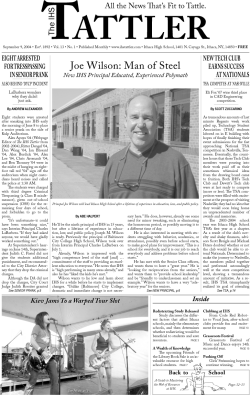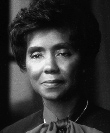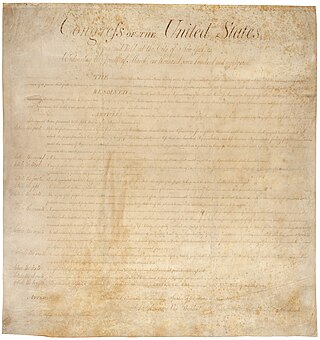Factual background
The plaintiff in this case, a student at Williamstown Middle High School in Vermont, had worn a T-shirt displaying the name "George W. Bush" and the words "Chicken-Hawk-In-Chief," underneath of which there was "a large picture of the President's face, wearing a helmet, superimposed on the body of a chicken." [2] Alongside the picture of the President was a depiction of "three lines of cocaine and a razor blade." [2] The wings of the "chicken" were depicted holding a straw and an alcoholic beverage. At the bottom of and on the back of the T-shirt there was additional verbiage making fun of Bush and, among other things, accusing him of being addicted to cocaine. Depictions of Bush, cocaine and alcohol were also present on the sleeves. After plaintiff had worn this shirt several times over a period of weeks, another student complained to a teacher, but was informed that the shirt constituted political speech, protected by law. However, after receiving a complaint from a parent, the defendant in the case, a school employee, asked the student to cover up the parts of the shirt pertaining to drugs and alcohol, or turn the shirt inside-out, or wear a different shirt, in accordance with the school system's dress code, which prohibits "any aspect of a" student's "appearance, which constitutes a real hazard to the health and safety of self and others or is otherwise distracting," (emphasis added) including "[c]lothing displaying alcohol, drugs, violence, obscenity, and racism." [3]
The student refused, and after the student's father had the opportunity to speak with the superintendent, the defendant school administrator completed a "discipline referral form" and sent the student home. After the student returned to school, he wore the T-shirt covered by duct tape (as required by the school), on top of which was written the word "censored."
The student sued the school administrators (the student support specialist, the principal and the superintendent) in order to have the disciplinary referral expunged from his record, and to enjoin the school from enforcing the dress code policy against him. The district court, applying the Supreme Court precedent set in Bethel School District No. 403 v. Fraser , [4] held that the images depicted on the shirt were "plainly offensive or inappropriate" and that the school was therefore entitled to enforce its dress-code policy, but also ordered the expungement of the offense from the student's disciplinary record. Both the plaintiffs and the defendant appealed.
Decision
The court of appeals held that the T-shirt, in spite of its depiction of drugs and alcohol, was protected speech under the First and Fourteenth Amendments to the Constitution of the United States.
In its decision, the court analyzed the facts in light of the following three Supreme Court cases: Tinker v. Des Moines Indep. Cmty. Sch. Dist. , 393 U.S. 503 (1969), Bethel School District No. 403 v. Fraser , 478 U.S. 675 (1986) and Hazelwood Sch. Dist. v. Kuhlmeier , 484 U.S. 260 (1988).
In Tinker, the United States Supreme Court held that a school may not ban students from wearing black armbands in protest of the Vietnam War. The Tinker case thus stands for the proposition that "a student may 'express his opinions, even on controversial subjects ... if he does so without materially and substantially interfer[ing] with the requirements of appropriate discipline in the operation of the school and without colliding with the rights of others,' Tinker 393 U.S. at 513 (alteration in original). The rule of Tinker has come to mean that a school may not regulate student expression unless the regulation may be 'justified by a showing that the student['s] [speech] would materially and substantially disrupt the work and discipline of the school.'" [5]
In Fraser, however, the Supreme Court held that a school could discipline a student for making a speech at a public assembly that "is 'vulgar,' 'lewd,' 'indecent,' or 'plainly offensive.'" [6] Fraser can be thought of as an exception to the general rule set forth in Tinker: student speech is generally protected under the Constitution, but the protection does not apply if the speech is "plainly offensive." [7] Whether Guiles' T-shirt was plainly offensive or not was a question of first impression in the Second Circuit; in this case, considering an analogous decision in Frederick v. Morse, 439 F.3d 1114 (9th Cir. 2006), the court held that the T-shirt is not "plainly offensive," and therefore falls within the protection of the Constitution as interpreted in Tinker, rather than being subject to regulation in accordance with Fraser. [7] [The holding in Frederick v. Morse was subsequently overruled by the Supreme Court, but this does not affect the precedential value of Guiles v. Marineau within the Second Circuit. [8] ]
In Hazelwood, the Supreme Court permitted schools to regulate the content of a school newspaper, on the grounds that there is a "distinction between school-sponsored speech and student speech.". [9] The student's T-shirt was not school-sponsored, nor was there any appearance of sponsorship by the school, and therefore Hazelwood was inapplicable in this case. [10]
Finally, the Guiles court held that the plaintiff's rights were violated even by the limited intervention of the school staff (who had given the plaintiff the choice of changing shirts, wearing the shirt inside out, or covering the depictions of drugs and alcohol). The court stated that "[t]he pictures" that the school administrators wanted the student to obscure "are an important part of the political message" that he "wished to convey, accentuating the anti-drug (and anti-Bush) message. By covering them defendants diluted the student's "message, blunting its force and impact. Such censorship may be justified under Tinker only when the substantial disruption test is satisfied." [11] As the student had worn the shirt on several days with no disruption to classroom activities, there are no grounds for the school to take any action against him.

The Tattler is the student newspaper of Ithaca High School in Ithaca, New York. Founded in 1892, it is one of the oldest student newspapers in the United States. It is published twelve times a year and has a circulation of about 3,000, with distribution in both the school and in the community.
Tinker v. Des Moines Independent Community School District, 393 U.S. 503 (1969), was a landmark decision by the United States Supreme Court that recognized the First Amendment rights of students in U.S. public schools. The Tinker test, also known as the "substantial disruption" test, is still used by courts today to determine whether a school's interest to prevent disruption infringes upon students' First Amendment rights. The Court famously opined, "It can hardly be argued that either students or teachers shed their constitutional rights to freedom of speech or expression at the schoolhouse gate."
Bethel School District v. Fraser, 478 U.S. 675 (1986), was a landmark decision of the Supreme Court of the United States in which the Court upheld the suspension of a high school student who delivered a sexually suggestive speech at a school assembly. The case involved free speech in public schools.

Saxe v. State College Area School District, 240 F.3d 200, was a case decided by the U.S. Court of Appeals for the Third Circuit that ruled that the State College Area School District's policy restricting "unwelcome" and "offensive" speech on public school grounds violates the First Amendment’s Free Speech Clause.

Milan Dale Smith, Jr. is an American attorney and jurist serving as a United States circuit judge of the United States Court of Appeals for the Ninth Circuit. Smith's brother, Gordon H. Smith, was a Republican U.S. Senator from 1997 to 2009. Milan Smith is neither a Republican nor a Democrat, and he considers himself to be a political independent.
Dennis Jacobs is a senior United States circuit judge of the United States Court of Appeals for the Second Circuit.
Morse v. Frederick, 551 U.S. 393 (2007), is a United States Supreme Court case where the Court held, 5–4, that the First Amendment does not prevent educators from prohibiting or punishing student speech that is reasonably viewed as promoting illegal drug use.

David Brookman "Brooks" Smith is a senior judge of the United States Court of Appeals for the Third Circuit. He was previously Chief Judge of both the United States Court of Appeals for the Third Circuit and the United States District Court for the Western District of Pennsylvania, and is the only judge in the history of the Third Circuit to have served as both a chief district judge and chief of the Court of Appeals.

Broussard v. School Board of Norfolk, 801 F. Supp. 1526 was a court case that took place in Norfolk, Virginia, United States in 1992. Kimberly Broussard, a middle school student was disciplined by the Norfolk Public Schools for wearing a t-shirt that read "Drugs Suck". When her parents sued on her behalf, her lawyer claimed that her shirt was a form of free speech protected by the First Amendment of the United States Constitution and the Tinker Standard. The United States District Court for the Eastern District of Virginia ruled in favor of the school board, saying that although the shirt displayed an anti-drug message, the word "suck" was a vulgar word with a sexual connotation and therefore not allowed in school.

Desilets v. Clearview Regional Board of Education, 137 N.J. 585 (1994), was a New Jersey Supreme Court decision that held that public school curricular student newspapers that have not been established as forums for student expression are subject to a lower level of First Amendment protection than independent student expression or newspapers established as forums for student expression.

California Education Code 48907 (1977), also known as the California Student Free Expression Law, acts as a counter to the Hazelwood v. Kuhlmeier (1988) Supreme Court ruling, which limited the freedom of speech granted to public high school newspapers. The Hazelwood v. Kuhlmeier decision held that public school curricular student newspapers that have not been established as "forums for student expression" are subject to a lower level of First Amendment protection than independent student expression or newspapers established as forums for student expression. Ed Code 48907 affirms the right of high school newspapers to publish whatever they choose, so long as the content isn't explicitly obscene, libelous, or slanderous, and doesn’t incite students to violate any laws or school regulations. The newspaper content must also pass the minimal disruption test set forth in the Supreme Court ruling on Tinker v. Des Moines (1969). In contrast with Hazelwood, which limited First Amendment protection to only those high school newspapers that had, through practice or policy, been established as forums for student expression, Ed Code 48907 affirms the right of all newspapers to the freedom of expression.
Lamb's Chapel v. Center Moriches Union Free School District, 508 U.S. 384 (1993), was a decision by the Supreme Court of the United States concerning whether the Free Speech Clause of the First Amendment was offended by a school district that refused to allow a church access to school premises to show films dealing with family and child-rearing issues faced by parents. In a unanimous decision, the court concluded that it was.

Consuelo Bland Marshall is a senior United States district judge of the United States District Court for the Central District of California.
The issue of school speech or curricular speech as it relates to the First Amendment to the United States Constitution has been the center of controversy and litigation since the mid-20th century. The First Amendment's guarantee of freedom of speech applies to students in the public schools. In the landmark decision Tinker v. Des Moines Independent Community School District, the U.S. Supreme Court formally recognized that students do not "shed their constitutional rights to freedom of speech or expression at the schoolhouse gate".

Stephanos Bibas is an American lawyer and jurist who serves as a U.S. circuit judge on the U.S. Court of Appeals for the Third Circuit. Before his appointment to the bench, Bibas was a professor of law and criminology at the University of Pennsylvania Law School, where he also served as director of its Supreme Court clinic.

Robert L. "Bob" Corn-Revere is an American First Amendment lawyer. Corn-Revere is the Chief Counsel at the Foundation for Individual Rights and Expression and was formerly a partner at Davis Wright Tremaine LLP in Washington, D.C. He is regularly listed as a leading First Amendment and media law practitioner by The Best Lawyers in America (Woodward/White), SuperLawyers Washington, D.C., and by Chambers USA . Best Lawyers in America named him as Washington, D.C.’s 2017 “Lawyer of the Year” in the areas of First Amendment Law and Litigation – First Amendment. He was again named as Best Lawyers’ “Lawyer of the Year” for First Amendment Law for 2019 and 2021, and in Media Law for 2022.

In the United States, some categories of speech are not protected by the First Amendment. According to the Supreme Court of the United States, the U.S. Constitution protects free speech while allowing limitations on certain categories of speech.
Hazelwood School District et al. v. Kuhlmeier et al., 484 U.S. 260 (1988), was a landmark decision by the Supreme Court of the United States which held, in a 5–3 decision, that student speech in a school-sponsored student newspaper at a public high school could be censored by school officials without a violation of First Amendment rights if the school's actions were "reasonably related" to a legitimate pedagogical concern.
Mahanoy Area School District v. B.L., 594 U.S. 180 (2021), was a United States Supreme Court case involving the ability of schools to regulate student speech made off-campus, including speech made on social media. The case challenged past interpretations of Tinker v. Des Moines Independent Community School District and Bethel School District v. Fraser in light of online communications.

Kowalski v. Berkeley County Schools, 652 F.3d 565 (2011), was a freedom of speech case of the United States Court of Appeals for the Fourth Circuit over the online speech of a public school student. The appeals court affirmed the decision of the district court that the student's suspension for online harassment of a fellow student was constitutional.












